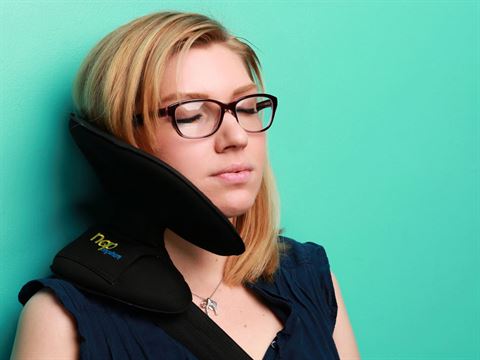Wellbeing • March 2014
Beauty sleep at 35,000 feet and beyond
It’s the seasoned traveller’s eternal question: how do you get a good night’s sleep in a hotel or on the plane? Our team of sleep experts have some clever tricks to help you on your journey to the land of nod
Temperature control
Keep your hotel room at a moderate temperature – about 18-20°C. The body cannot compensate for the surrounding temperature, and if it’s too warm, your sleep will be disturbed. Help promote sleep by decreasing your body temperature before going to bed. Avoid long baths and physical activity, as well as using electrical blankets.
Professor Gaby Badre, sleep consultant at The London Clinic, medical director BOC Sleep Clinic and listed in the Tatler Doctors Guide 2013
Power nap (and power down)
Power naps can help make up for lost sleep when travelling. Working late in your room should also be avoided, so power down all electronic devices an hour before bedtime. Most hotels offer wake-up calls, but this service can be used for the reverse reason (called a Work-Down Call at The Benjamin), to remind you it is time for lights out.
Rebecca Robbins, sleep consultant, The Benjamin New York
Eat right
Make sure your last meal of the day includes chicken or turkey. The meat contains a decent dose of the amino acid tryptophan, which helps produce the sleep neurotransmitter melatonin and is absorbed more quickly if eaten with carbohydrates. Spinach provides magnesium to help with relaxation. Avoid eating that chocolate on the pillow before bed – it usually contains caffeine.
Jeanette Hyde, nutritional therapist for the Corinthia Hotel London
The new travel pillow
I have fallen in love with NapAnywhere. Unlike the regular sausage-shaped travel pillows, this device supports your cervical spine. It collapses into a disc-shaped object that can be slipped into your computer bag or briefcase.
W. Christopher Winter, medical director of the Martha Jefferson Hospital Sleep Medicine Center in Charlottesville, Virginia

It does exactly what it says on the tin: NapAnywhere supports your cervical spine when you sleep upright
Float to beat jet lag
A 20-minute dry flotation bed treatment is the equivalent of three hours’ sleep. The waterbed relaxes the joints and muscular system, while the constant heat source provides comfort for a stressed and aching body. Jets underneath the covering provide a gentle aqua massage and help improve circulation and blood flow.
Radhika Khandke, spa manager at InterContinental London Park Lane
Get comfy on the plane
Wear loose clothes and shoes on the plane, and grab extra blankets and pillows for your comfort as soon as you board.
Avoid caffeine before flying, and limit your alcohol intake. However tempting it is to use alcohol to relax you, remember that it’s dehydrating.
Sammy Margo, sleep expert and physiotherapist
Adjust your time zone
When you arrive at your destination, stick to the local time to go to bed. When I travel west to the US, I manage to stay up until around 8pm or 9pm. When I go east, it’s harder, so a nap in the day helps. The sooner you get on to local time, the better. Have a light, healthy snack when you arrive, too, as low blood sugar can cause you to wake up in the night.
Sarah Wilson, Nutriberry Nutritional Therapy, nutritional therapist for British Airways
Beat jet lag with British Airways’ jet lag calculator. Developed in conjunction with Dr Chris Idzikowski, it will advise you on the best things to do to minimise jet lag based on the answers to a few simple questions about your flight.